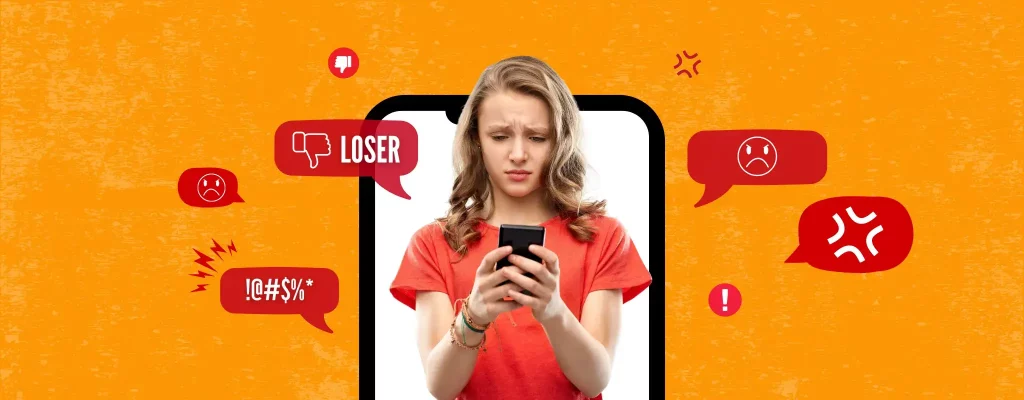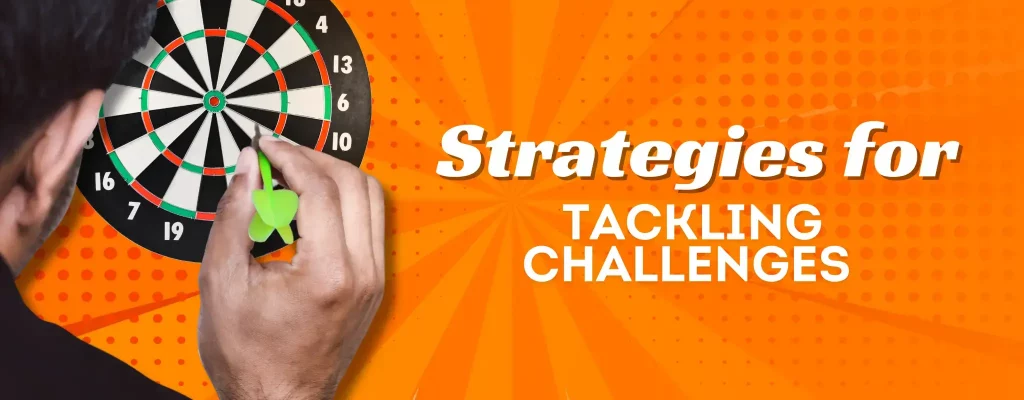Social media is a powerful tool for connecting with people and staying up-to-date about current events. In today’s digital world, online businesses have embraced social media to expand reach, attract customers, and expand market reach.
However, the biggest challenge comes when harmful posts and comments exist within their platforms, potentially damaging their brand’s online image. This is why the task of social media content moderators is crucial. As the protector of social media platforms, they ensure that all user-generated content (UGC) is consistent with the company’s goals and values.
Let’s find out more about their role in tackling online challenges and how they change our online experiences!
Understanding Online Challenges

While social media promotes staying in touch despite long distances, it can also be a breeding ground for harmful content. From hate speech to phishing attempts, social media moderators face a myriad of online challenges that compromise user safety and platform reputation.
- Hate Speech
As a medium for voicing opinions, social media can be used to spread hate through offensive comments that may contain sarcasm, profanity, and discriminatory remarks. Consequently, this may encourage violence towards an individual or a group of people based on their race, ethnicity, religion, color, gender, or other identity factors.
When a brand tolerates hate speech on its social media platforms, it risks losing followers and tarnishing its online reputation.
- Cyberbullying
Cyberbullying includes mean or rude comments, messages, or posts that aim to scare, intimidate, shame, or impersonate other users. Similar to hate speech, cyberbullying and harassment are harmful content that can tarnish a company’s image, which can even require legal action.
- Misinformation
Social media is the most accessible channel for proliferating fake news. Many social media accounts are used to deliberately spread false information, which can cause uninformed users to share inaccurate and misleading content.
Without proper moderation, misinformation can influence people’s beliefs and warp political discourse. Brands that condone such content on their platforms can result in lower engagement and trust.
- Graphic Content
As social media becomes more image and video-centric, graphic violence and explicit imagery also become widespread. For younger audiences who are vulnerable to clickbaits and viral videos, distressing imagery can gravely affect their sense of the world.
With 56% of 11- to 16-year-olds already seeing explicit material online, it’s only necessary for brands to combat this pressing online challenge.
- Drugs and Illegal Activities
Unfortunately, the same social marketing strategies used to advertise alcohol can be used to promote illegal drugs online. In fact, studies show that 13 in 100 social media posts are illicit drug advertisements.
With such alarming numbers, some users can use whichever platforms for drug promotion and other illegal activities, which could impact user and brand safety.
- Terrorism or Extremist Material
Over the years, political extremists and terrorists have used social media to spread online propaganda. They have weaponized Facebook groups, timelines, and tweets to broadcast terrorist attacks, raise funds, and recruit new members.
Prevalence of such material in our social media spaces has led to increased violence and political polarization. If these types of content are seen on company social media accounts, user safety, trust ratings, and overall revenue could suffer.
- Phishing Scams
Phishing refers to impersonating or faking an identity to commit fraudulent activities. Cybercriminals can exploit businesses that leverage social media for marketing to perform phishing attacks, compromising the safety of user accounts. They can also attack users directly and people linked to their accounts, such as relatives and friends.
Phishing attempts can be masked as malicious direct messages, suspicious emails, or links that may cause targeted individuals to give their personal information and financial details.
Role of Content Moderators

With these rampant online challenges, content moderation on social media is necessary for ensuring safe online experiences for everyone.
But first, what is a social media moderator?
A social media moderator is the person behind the screen who monitors each post uploaded on social media platforms (such as Facebook, Instagram, YouTube, X, and LinkedIn) and decides if the content gets approved or rejected based on the platform’s guidelines.
Through their keen eye for detail and effective application of moderation strategies, they tackle online challenges by performing the following responsibilities:
- Screen UGC
The main responsibility of a social media content moderator is to screen all UGC, including text posts, images, videos, and other forms of online media. They check comment sections, chats, forums, and live streams for inappropriate content and make the necessary judgment call if they find a violation.
- Enforce Community Guidelines
Community guidelines encompass company policies and standards that outline what type of content and online behavior is acceptable on social media channels. Social media moderators carefully review and enforce these guidelines, curbing the proliferation of cyberbullying, scams, misinformation, and other perpetuating online threats.
- Handle User Reports
Once a user files a report regarding a violation, a social media content moderator must immediately take action to resolve the issue. They are responsible for verifying if the reported content is indeed non-compliant and making the appropriate decision after evaluation. The assigned moderator also communicates the outcome with the complainant and informs them about further steps or asks about additional concerns.
- Monitor User Behavior and Trends
As the social media landscape continues to evolve, content moderation policies must also change to address ethical issues in social media. Thus, content moderators must adjust their social media moderation solutions to adapt to digital changes.
Moreover, social media moderators must keep track of platform users’ behavior and social media trends. By doing so, they can identify new forms of harmful content and quickly adjust their moderation solutions while maintaining accuracy and efficiency.
- Ensure Legal Compliance
Social media content moderators must stay up-to-date with current laws and regulations surrounding user privacy and data security as mandated by the General Data Protection Regulation (GDPR) and the Health Insurance Portability and Accountability Act (HIPAA).
Their collaboration with legal departments is essential in enforcing irrefutable community guidelines and winning the battle against cyber threats.
Qualities of A Social Media Moderator
To successfully fulfill the duties of a social media content moderator, they must possess the following characteristics:
- Sharp Analytical Skills
A social media moderator must show sharp analytical skills to determine new trends and patterns in user behavior, such as new slang or prevalent scamming methods circulating on social media. An effective moderator can quickly analyze suspicious content, even those that appear harmless at first glance.
- Strong Attention to Detail
Moderating large volumes of content daily requires a strong attention to detail. Not only must they skim through oceans of texts, images, and videos quickly, but also with a high degree of accuracy. A sharp eye for nuances, cultural sensitivities, and varying communication styles is essential in executing moderation tasks.
- Excellent Communication Skills
Clear and effective communication skills are also essential for social media content moderators. They need to convey their moderation decision in an assertive and unbiased manner to help users understand why their post was flagged or removed.
- Curiosity and Sound Judgment
Having a curious mindset leads to sound judgment. A social media moderator who regularly encounters new expressions from users with different cultural backgrounds must be curious enough to dig deep and understand the context behind each post.
- Resilience to Disturbing Content
Social media moderation includes being exposed to disturbing and harmful content. Thus, social media moderators must be resilient to handle the psychological impact of such content. Resilience will help them sustain their focus throughout the day and make impartial moderation decisions.
Tools and Technologies

Since social media moderation is multifaceted, moderators must have a complete arsenal of tools and technologies. These will help them increase productivity, accuracy, and efficiency in providing the best social media moderation services.
These include the following:
Content Detection and Filtering Tools
A social media moderator’s primary weapon for tackling online challenges is content detection and filtering tools, such as artificial intelligence (AI), keyword scanners and image recognition technology, among others.
Here’s a quick overview of these technologies:
- AI Tools
AI tools, such as machine learning, support human moderators in screening social media content. They can automatically filter and detect offensive language, explicit images, videos, and other forms of unwanted content.
- Keyword Filtering
Content moderation solutions also implement keyword filtering to scan the textual content for offensive or harmful words and phrases. Through natural language processing and AI algorithms, platforms can detect inappropriate texts in multiple languages and formats.
- Image Recognition
Image recognition tools allow social media moderators to distinguish harmful objects within an image or video and classify them based on predefined criteria.
User Report and Feedback Systems
What makes social media moderation strategies more compelling is the implementation of user reporting and feedback mechanisms. This fosters a culture where users actively participate in the moderation process. Reporting mechanisms allow users to flag inappropriate content that automated systems might miss.
Moreover, user input through feedback systems also helps social media moderators identify strengths and areas for improvement. This facilitates improvement in current regulations and encourages users to be more proactive in social media moderation efforts.
Strategies for Tackling Challenges

Whether we like it or not, online challenges are here to stay. However, it doesn’t mean we can’t make social media a safe space.
Here are some strategies for tackling digital challenges:
- Leveraging AI Content Moderation
Content moderation conventionally relied on human efforts alone. However, due to the emergence of AI, automated moderation was made possible. It streamlined the moderation process, resulting in a faster, more accurate, and flexible approach to address emerging online challenges.
For example, Facebook and YouTube utilize AI systems to moderate harmful content by flagging and removing non-compliant posts on their platforms.
- Employing Quality Assurance Techniques
Maintaining accurate and consistent moderation is a key concern for social media moderators. Dedicated quality review teams can check previously moderated content or conduct pre-reviews to ensure quality and identify errors such as false positives, false negatives, and technical problems.
- Coordination with Legal Department
Collaborating with legal and compliance departments is also a key moderation strategy. By doing so, platforms can safeguard user data and privacy by implementing data protection regulations. The legal team can also verify if the moderated content adheres to internal policies and external laws and regulations.
- User Education and Empowerment
One of the best practices in social media moderation is educating and encouraging users to use reporting mechanisms to address common problems like hate speech, cyberbullying, illegal content, and online scams.
For instance, if a user encounters a fake profile pretending to be someone they know, they can easily report the incident as identity theft if they know how to use the proper tools.
Impact and Future Trends

Effective content moderation can indeed shape user experience and foster platform growth within the social media landscape. By maintaining a safe and welcoming online environment, a social media content moderator can influence user engagement, retention rates, and the overall success of social media platforms.
Looking ahead, several trends and predictions are poised to mold the future of social media moderation, especially in tackling harmful online threats. AI and machine learning will continue to be harnessed as supplementary tools for manual moderation. These technologies will be further developed to address the growing problem of deepfakes, AI-generated misinformation, and the potential implications of virtual reality in our digital spaces.
Aside from these advancements, social media moderation practices will emphasize transparency and accountability as users demand greater visibility on how platforms enforce their community policies and guidelines.
Navigating the Future of Social Media Moderation

As social media continues to evolve, the role of a social media content moderator remains indispensable in navigating the complexities of online challenges. From combating hate speech to addressing misinformation, their vigilant efforts safeguard user safety and uphold the integrity of digital communities.
Looking forward, the future of social media moderation is marked by innovation and adaptation. AI and machine learning will augment human moderation efforts, addressing emerging threats like deepfakes and AI-generated content. Moreover, transparency and accountability will be paramount as platforms strive to meet user expectations for ethical content management.
In this dynamic landscape, content moderators serve as guardians of digital integrity, ensuring that social media remains a vibrant, inclusive, and safe space for all users. As we embrace these challenges, Chekkee stands as a trustworthy partner committed to providing effective social media moderation services essential for shaping a healthier online environment.
Contact us today to learn more about our offers!



